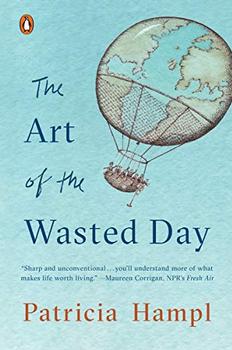Summary | Excerpt | Reviews | Beyond the book | Read-Alikes | Genres & Themes | Author Bio

On Writers and Drinking
by Olivia LaingOlivia Laing's second book, The Trip to Echo Spring, is part travel memoir, part literary criticism lite. She explores the lives of six twentieth century American writers – F. Scott Fitzgerald, Ernest Hemingway, Tennessee Williams, John Berryman, John Cheever and Raymond Carver – who were united by both their addiction to the written word and to alcohol. And in some odd way, Laing's deep interest in each author, and in these two oft-associated activities, makes for a pretty fascinating read.
A meticulously planned journey to see and experience the places that were important to these writers brings Laing from England to the United States and results in many hours and days of train riding and hotel rooms - writing, reading and reflecting all the while. She makes no effort in her prose to hide her fascination with the American landscape or how being consistently "under the influence" influences the most talented of writers. Laing does not, however, spend much time on the popular question of whether drinking is somehow a catalyst for creativity. She mostly steers clear of this myth except when referring to some of the men's own excuses for their destructive habit.
Working her way semi-chronologically through each author's life, Laing does her best to parse what is true to life and what is construct, both in their most famous works and in their personal journals. She also chronicles the toll alcohol abuse takes on each writer's family and relationships. It is this secondary theme that draws Laing's own painful childhood memories of the domestic disruptions of alcohol into the text. Though some readers may question the author's choice to insert her story among those of such famous scribes, I found her self-revelation to be an appropriate motivating and unifying factor, the foundation for all of her study and reflection on this subject.
It is common in writing about literature to examine and postulate about which parts and how much of an author's biography became part of their fiction. Laing is also concerned here with these same questions, but in a laser-focused manner. It seems she wants to know, above all else, how much the alcohol is speaking through the art. This question is ultimately unanswerable, of course, and Laing knows this. She believes the attempt is still instructive and worthy, a literary lens through which to gain partial understanding of the disease of alcoholism.
My affection for this book grew slowly. Laing liberally mingles her present travels and her own past exposure to alcoholism with the lives and writings of the featured writers. This complex layering initially intimidated, and at times, confused me. But as I read, I grew accustomed to the complex rhythm, then became happily absorbed by it. This splintered narrative might not be for every reader; it is ultimately effective, however, in exposing just that same characteristic in the lives - and sometimes written words - of those controlled by drink.
The passages where Laing's mother joins her at the close of the book, which is also the close of the author's American travels, turn the tone from sadly empathetic to almost celebratory. It was her mother's partner who first introduced Liang to the great upheavals a drinker brings to the family home, yet the book closes with a welcome hopeful turn. I found it reassuring to eavesdrop on mother and daughter in the final pages as they reflected on the hardships of the past in light of an eventual sober victory. Though only one of the writers whom Liang profiles conquered his alcoholism, the author's choice to include this personal story provided just the balance of hope The Trip to Echo Spring needed.
![]() This review was originally published in The BookBrowse Review in February 2014, and has been updated for the
October 2014 edition.
Click here to go to this issue.
This review was originally published in The BookBrowse Review in February 2014, and has been updated for the
October 2014 edition.
Click here to go to this issue.

If you liked The Trip to Echo Spring, try these:

by Melissa Febos
Published 2025
From the national bestselling author of Girlhood, an examination of the solitude, freedoms, and feminist heroes Melissa Febos discovered during a year of celibacy. A wise and transformative look at relationships and self-knowledge.

by Patricia Hampl
Published 2019
A spirited inquiry into the lost value of leisure and daydream.
Your guide toexceptional books
BookBrowse seeks out and recommends the best in contemporary fiction and nonfiction—books that not only engage and entertain but also deepen our understanding of ourselves and the world around us.